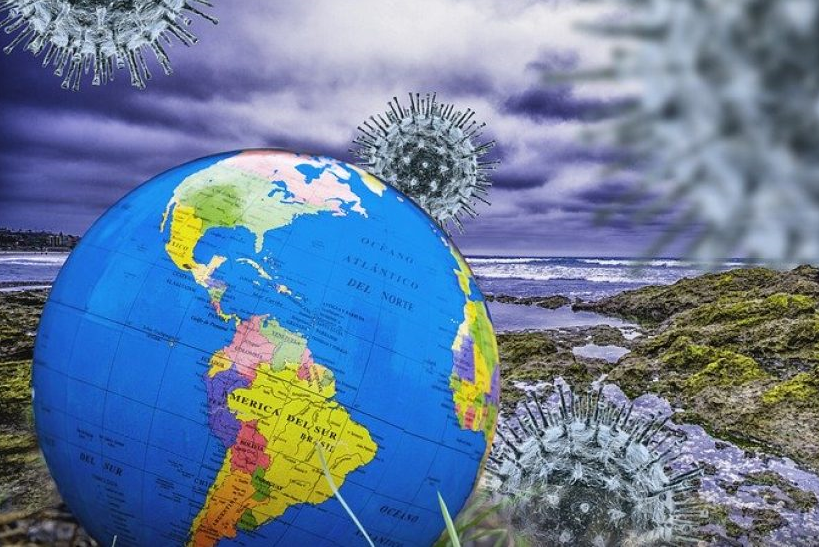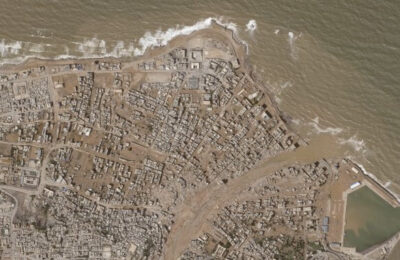The coronavirus pandemic must be seen as a part of the overall ecological crisis and not a separate issue, argues Alan Thornett

The link often made between COP 26 (in Glasgow at the end of the year) and Covid-19, is that the Covid lockdown caused COP 26 to be postponed and now it is threatening to restrict what can be done around it when it takes place. Other than that they are routinely treated as separate subjects.
This, in my view, is a fundamental mistake. Such zoonotic pandemics are not separate issues but first and foremost an ecological issue. In other word Covid 19 is an integral part of the global ecological crisis itself not just something occurring at the same time, or existing in parallel with it. Such pandemics are (more precisely) a direct result of rapidly increasing anthropological pressure on the natural world and is on a par with the other such existential threats such as global warming, the pollution and acidification of the oceans, the mass extinction of species, and fresh water depletion.
We are now in the epoch of increasing numbers pandemics of dangerous pathogens, and if there is to be a long term solution to them it will not be in the form of endless vaccines chasing endless mutations until we are eventually hit by one for which there is no vaccine, but via a fundamental change in our relationship with nature and a much higher commitment to the struggle against climate change and environmental pollution.
Corona viruses exist in the wild in host species – often fruit bats or various rodent species – that have immune systems powerful enough to tolerate them. These viruses then spillover ‘zoonotically’ into other species when their hosts are thrown into close proximity with them under highly stressed conditions.
The danger of such spillovers is greater today than at any time in human history. This is because human impact on the rest of nature is also greater today than at any time in human history. Today’s model of human society, with its densely packed mega city populations and globalised trade and transport systems create not only the best conditions for such spillovers to take place but the best conditions for such pathogens to spread rapidly amongst the human population globally afterwards.
This puts COP 26 – and indeed the of whole the UN operation for the reduction of GHGs since the Earth Summit in Rio in 1992 – in the front line on this issue. We have to demand that this is recognised by the UN and a new level of urgency injected into the process. The COP 26 coalition needs to integrate needs to integrate Covid-19 more strongly into its activity around the Glasgow COP and the From the Ground Up event need to pay more attention to it.
It also means placing fundamental change at the level of the viability of the planet as a sustainable living space for ourselves and the other species that live on it. The pandemic itself has already pointed the way in this. Since Covid-19 struck, air pollution and carbon emissions are falling at an unprecedented rate with aviation, one of the planet’s biggest polluters, still at a global standstill. Nature is re-colonising habitats that were dead prior to the lockdown.
It would be a disaster if all this was lost with the return of some kind of ‘normality’. The most salient point about Sunak’s recent budget – which covered spending commitments over the next few years, is that it had nothing to say about the environment at all. It is another massive lost opportunity.
We have to insist that there is no return to past levels of pollution and that the investment that will come as an attempt to recover from the economic consequences of C-19 should be used to build for a zero-carbon sustainable future. The ‘old normal’, it is often said, no longer exists. What is to be determined is whether any ‘new normal’ will be capable of creating a safe living space on this planet.
It follows from this that campaigning on these issues should not be separate either. Climate campaigners need to take the virus into account and Covid-19 campaigners have to campaign on the directly environmental issues as well. Nothing else makes sense.
Our demands must therefore include:
- A comprehensive changeover to renewable energy – wind, solar, tidal, and geothermal, with no nuclear component. It means the electrification of the transport system: road, rail, and maritime – including electric cars but with a big reduction in car usage. It means the abolition of the diesel engine forthwith and the internal combustion engine by 2030. It means the upgrading and decarbonisation of the national grid.
- No return to mass air travel. Reduction not expansion of airport capacity.
- A halt to habitat destruction. The extinction of species continues to run a 1,000 times faster than the ‘natural’ or ‘background’ rate that has occurred naturally over millennia. This is now recognised as the ‘sixth mass extinction’ – the biggest extinction event the planet has faced since the demise of the dinosaurs 65 million years ago.
- An end to industrialised agriculture. Sixty per cent of global biodiversity loss is directly due to agriculture. The cattle sector of Brazilian Amazon agriculture, driven by the international beef and leather trades, has been responsible for about 80% of all deforestation in the region, or roughly 14% of the world’s total annual deforestation.
- An end to wet markets trading in wild animals and endangered species. (Recognising that not all markets known as wet markets fall into this category).
- There must be a big reduction in meat consumption. Today, 70 billion animals are slaughtered every year for human consumption. This is set to double again by 2050. These animals consume vast quantities of corn, maize, and soy that could otherwise be eaten, far more effectively, by the human population.
Meat eating and air travel in particular simply cannot continue at the old levels. Not everyone can be a vegan or even a vegetarian, of course, or indeed stop using air travel. But there is a lot the individual person can do short of that. If you can’t stop eating meat you can eat less of it – limit it to once a day or once a week or have a meat free day each week. The issue is to be conscious of your own action and take the planet into account. Not everyone can stop using air travel, or even long-haul flights, but everyone can think carefully about it first.
The starting point must be a completely new relationship between human beings and nature. This means both major structural changes in the way human society is organised alongside big changes in the way we all live our individual lives and manage our personal impact on the planet.


